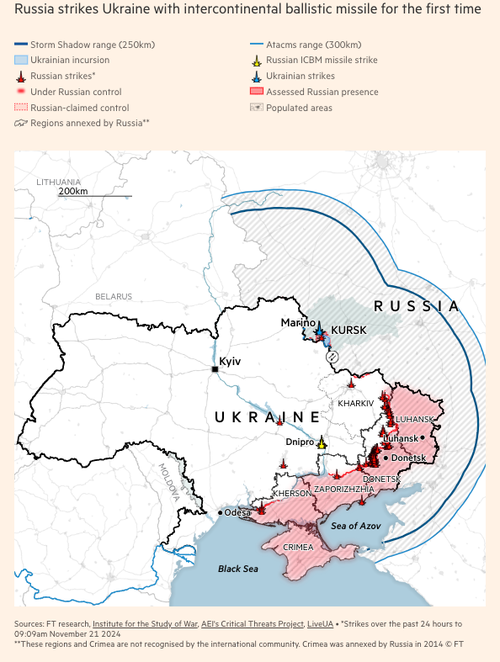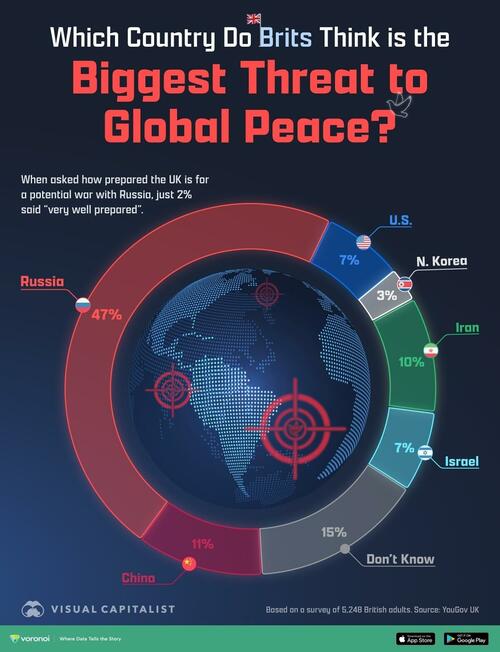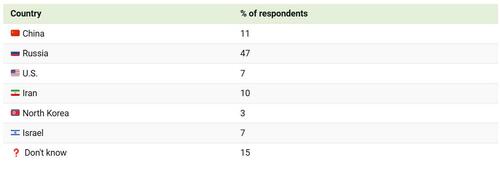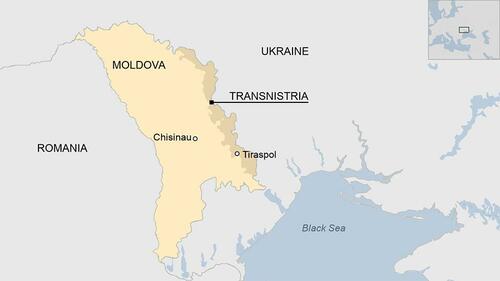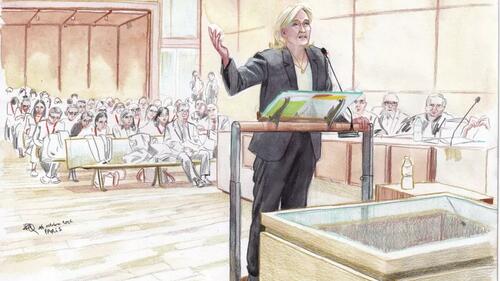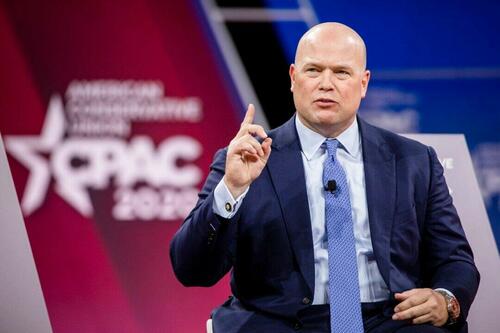Authored by Susan Crabtree via ReaalClearPolitics,
It just might be the most personal hiring decision President-elect Trump will ever make, but if he’s already chosen, he’s keeping the contenders in suspense.

After surviving two assassination attempts in roughly two months, Donald Trump is in the awkward position of owing his life to the Secret Service agents and officers who intervened to protect him, even as he remains deeply critical of the failures that allowed the near-misses to occur.
And the threats against Trump, Vice President-elect J.D. Vance, and the leaders of the incoming administration aren’t going away. In late September, then-Rep. Matt Gaetz, Trump’s controversial choice for attorney general, said he was briefed by senior members of the Department of Homeland Security that there were five known assassination teams threatening Trump’s life, three of which he said were foreign. Just three days after the election, the Justice Department charged three people in connection to an alleged Iranian plot to assassinate Trump.
Still, just days after the second attempt on this life, Trump heaped praise on the agent for quick action after spotting suspect Ryan Routh’s rifle sticking out of the bushes along the perimeter of his Florida golf course and then opening fire. Trump contrasted that swift intervention with the first attempt July 13 when a bullet grazed his ear.
“And, in this particular case, you had a very sharp agent, as good as you could find, and did a fantastic job,” Trump said in an interview on Fox News’s “Hannity.”
“But somebody could have missed the barrel of that rifle,” he added. “Somebody of lesser talents or somebody that was distracted could have missed or could have been shot, I mean, frankly, could have also been shot.”
Trump acknowledged the incident at his golf club in West Palm Beach ”worked out very well” but said the July 13 incident in Butler, Pennsylvania, when shooter Thomas Crooks killed rally goer Corey Comperatore and wounded two others before being shot by a Secret Service counter sniper, “was a very different story.”
“Somebody should have been on that building. And that’s a different story. But they also showed great … they were very brave, because, when those bullets were flying, they were … they were … trying to protect me.”
The dual sentiments no doubt factor into Trump’s decision-making regarding his choice to lead the beleaguered Secret Service. Even before the two assassination attempts, the agency was facing criticism over its DEI hiring priorities, lack of thorough applicant vetting, and the lowering of its training and physical fitness standards. At the same time, Secret Service morale hovered among the lowest of all federal agencies.
The congressional reports and a review panel’s findings also cite the inexperience of two agents in charge of security for the Butler rally, as well as the failure of supervisors to re-check their work and make the necessary changes. They also chronicled a litany of mistakes, including failing to check whether a local law enforcement agent was posted on the building where the Crooks perched, not including that building in the official event perimeter, and maintaining siloed communications between the Secret Service and local law enforcement partners.
Even though Trump was thankful for the eagle-eyed agent who spotted Routh hiding in the bushes at his West Palm Beach golf course, critics faulted his Secret Service detail for failing to sweep the perimeter. The 58-year-old had been camping out on the perimeter of the course 12 hours ahead of time but went unnoticed until Trump was within several hundred feet of his loaded rifle. Acting Secret Service Director Ronald Rowe explained the decision not to search the perimeter of the golf course because the golf game was considered off-the-record, or “OTR” in agency parlance, meaning it was not on Trump’s official schedule even though he regularly played the course on the weekends.
After the attempts on Trump’s life, the agency faced an avalanche of criticism from congressional committees, internal agency whistleblowers, and a scathing report from a bipartisan Independent Review Panel recommending a thorough overhaul of the Secret Service leadership.
The two assassination attempts within two months were the lowest point for the Secret Service since President Ronald Reagan was shot in early 1981. But Trump’s big win has boosted confidence within the agency that major reforms will begin once he names and installs a new director.
Now that Trump has won, and Secret Service employees expect the incoming president to choose new leaders, agents and officers are deeply divided on who is the best candidate to thoroughly overhaul the agency. The top reform many seek is to allow the Secret Service leaders to jettison DEI priorities and return to making hiring decisions instead of delegating recruiting and vetting to administrative personnel unfamiliar with the rigors of the protective assignments.
The top two names circulating among current and retired Secret Service agents and officers are Sean Curran, the leader of Trump’s personal detail, and Dan Bongino, a conservative commentator and host of a popular podcast who previously served for 12 years in the Secret Service.
Both were with Trump Saturday night for the Ultimate Fighting Championship match between Jon Jones and Stipe Mocic at Madison Square Garden. Curran was a part of Trump’s security team that night, and Bongino was part of Trump’s entourage of Cabinet picks, politicians, and celebrities, including Elon Musk, Tulsi Gabbard, RFK Jr., Dana White, Joe Rogan, Speaker Mike Johnson, Kid Rock, and Jelly Roll.
During the event, according to a Secret Service source, Bongino told other special agents protecting Trump that “Help is on the way.”
During Bongino’s Monday podcast, however, he was far more coy about Trump’s, and his, intentions.
“So, I know a lot of you are interested in a lot of the behind the scenes about who’s what … I’m just here again to repeat, none of this stuff is my decision, okay – about anything,” he told his listeners.
“You guys know what I’m talking about. And there’s a lot to think about if that decision were to happen, and you guys will be the first to know,” he added. “Because I love you, and you guys matter. And so just hang with me, you know?”
Curran was caught that night at the Madison Square Garden fight in an elevator pic with Trump and Musk. Curran usually tries to operate behind the scenes, though his image is immortalized in the iconic photo of Trump in the immediate aftermath of the first assassination attempt. Curran appears to Trump’s left as the then-GOP nominee pumps his fist in the air, blood trickling down his cheek and an American flag fluttering in the background.
The choice between Curran and Bongino is highly competitive, and each have constituencies pulling for them. Trump is very close to Curran, who served as the assistant special agent in charge of Trump’s security detail while he was president and then moved to lead the detail in 2021, when Biden won and Trump was out of office. That top leadership role continued while Trump was running for reelection. Curran’s supporters for the director job credit him for pushing back against the outmoded protocol that because Trump is technically a former president, he shouldn’t therefore be allotted more security assets.
Instead, Curran continually tried to persuade Secret Service top brass to allocate higher security resources because Trump obviously faced far more threats as one of the most well-known and controversial political figures in the world and could not be treated like other former presidents. Until the assassination attempts, however, Secret Service leaders rejected those requests, and sources say Curran has the receipts – a long-running written record of those leadership denials.
Curran was successful in obtaining more security resources for Mar-a-Lago even before the assassination attempts, although the agency was so slow in installing them that a juvenile managed to enter the property and jump into a pool late last year.
Secret Service sources say that just a few days after Trump’s decisive election win, Curran told fellow agents that he believed Trump would tap him for the top role. Many veteran agents have reached out to RCP to back Curran’s candidacy, arguing that he’s an even-keeled leader and exceptional agent regarding his training, drilling, and performance levels.
But others have faulted him for allowing an inexperienced female agent to serve as one of two agents in charge of security plans for the Butler rally, without supervisors modifying the plan after required walk-throughs and extra scrutiny. Others, including Erik Prince, a former Navy SEAL who runs the security firm Blackwater, have criticized the Secret Service leadership for a “lack of seriousness” in securing Trump throughout this campaign. He also said the perimeter should have been extended to 1,000 meters from the stage because that’s how far an expert sniper can accurately shoot.
Trump has repeatedly praised the agents who put themselves in the line of fire to protect him in the moments after he was shot in Butler, but Prince wasn’t as impressed.
“The Secret Service detail did an awful job getting Trump off the X and let him stand up again,” Prince told a panel of Republican House members at the Heritage Foundation in August.
“[It showed] great instincts of the president to come back defiant, having just been shot in the head to come back and say, ‘Fight, fight, fight,’” Prince acknowledged. “But he never should have had the opportunity to do that because his detail should have put him horizontal and moved him off there immediately.”
If Trump taps Curran to lead the Secret Service, he will reject the recommendations of two bipartisan blue-ribbon commissions who recommended in 2015 and again this year that the next president choose someone outside the agency to fill the director role.
Dan Bongino for many years has been highly critical of the Secret Service, and he was especially so after the July 13 attempt on Trump’s life. Bongino also sat on the Heritage panel to Prince’s left and took a broader view. The conservative commentator argued that the problems in the Secret Service were systemic and directly related to DEI initiatives and the lowering of meritocracy and training standards.
Rep. Cori Mills, a Florida Republican who had served as a member of the Army’s 82nd Airborne Division before becoming a security specialist in the private defense sector, appeared on the same panel.
Responding to Bongino’s testimony, Mills said, “I think you’re saying DEI plays a major role, not meritocracy, with regards to the current culture that has been fostered [at the Secret Service.]
Bongino provided a terse response: “Not a [role] – but the major role,” he stressed.
The former Fox News host has a solid following on social media and among active and retired Secret Service agents and officers who argue that he would go to the mat to overhaul the agency and end DEI and other non-meritocracy hiring priorities. But some fear Bongino has been away from the Secret Service too long to know how to sort out the bad apples in leadership. Others argue that it depends on who Bongino would tap as his deputy to run the day-to-day agency operations while he’s dealing with the bigger picture and broad reforms.
Because Trump will continue to face threats from Iran throughout his time in the Oval Office, the Secret Service director will no doubt have an elevated role in the Trump administration and will likely be constantly interacting with the intelligence community to assess the threat levels. If confirmed, that elite group of national security Cabinet members would likely include Tulsi Gabbard as the director of national intelligence, or DNI, and John Ratcliffe, who previously served as DNI and whom Trump nominated to become his CIA director, as well as whomever Trump names as FBI director.
Kash Patel, a former National Security Council official in the last Trump administration, and former Rep. Mike Rogers, who had served as an FBI agent for several years, are contenders for the FBI director job. Bongino’s brash style may be better equipped to square off with those outsized egos and cut through the agency’s bureaucracy and woke policies. Some in the Secret Service community are hoping Trump appoints a leader who is listening to the rank-and-file to distinguish the bad actors from the hard-working agents and push out the ineffective and manipulative leaders.
Besides Bongino and Curran, there are several other top contenders to lead the Secret Service and the necessary reforms, including Tom Armas, a U.S. Marine general who also previously served several years as a Secret Service agent but spent the majority of his career in the military. Armas worked with Bongino in the Secret Service’s New York Field Office and has received high praise for his 9/11 bravery. Armas ran into the collapsing World Trade Center buildings and carried many people to safety amidst the chaos, dust, and debris.
If selected, Armas would follow in the footsteps of Randolph “Tex” Alles, a formerU.S. Marine Corps general and the first Secret Service director selected from outside the agency in its 159-year history. Trump chose Alles to lead the agency from 2017 to 2019. During that time, Alles built a good rapport among rank-and-file agents, but many believed several agency leaders successfully sabotaged him. Alles was swept out of the agency when Department of Homeland Security Secretary Kirstjen Nielson left her post in April 2019.
Secret Service sources are also touting Michael D’Ambrosio, a respected senior career agent and former platoon commander in the U.S. Marines, for a leadership post. D’Ambrosio aggressively helped rush Trump off stage during a Nevada campaign rally eight years ago when a protester rushed the stage.
Other names in the mix include Jim Lewis, a former Secret Service agent who now serves as a senior Department of Homeland Security official, and Billy Davis, a high-performing agent who retired in 2015 after 29 years with the Secret Service (Davis is also known as a former Clemson University football player).
Susan Crabtree is RealClearPolitics’ national political correspondent.
